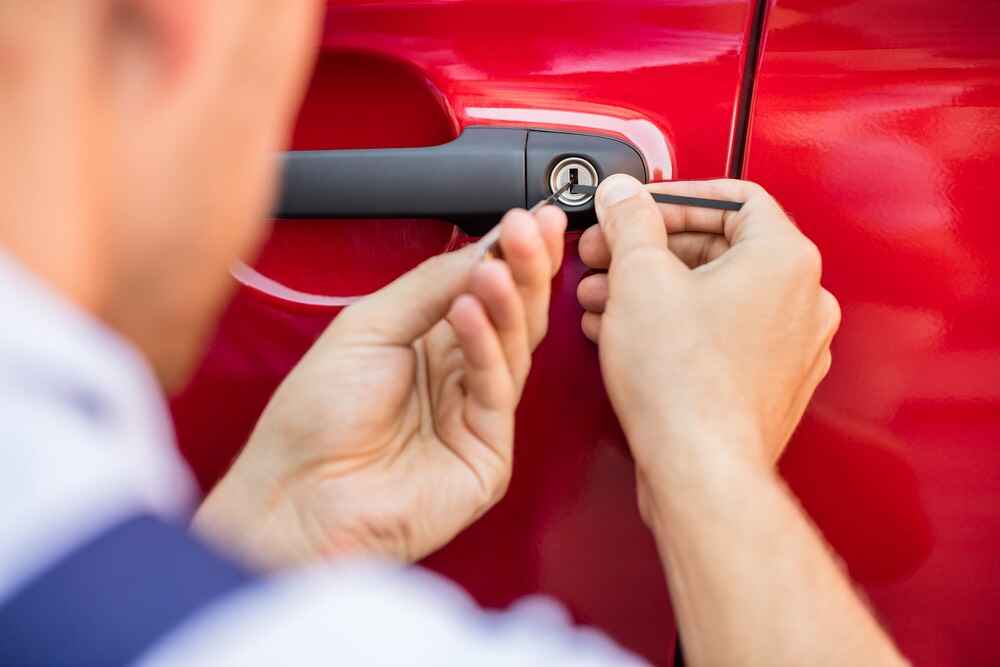If you find yourself locked out of your keyless car, you might wonder if a locksmith can help you get back on the road. The technology behind keyless entry systems may seem complex, but skilled locksmiths have the expertise to assist in such situations.
However, their methods and success rate can vary depending on your vehicle’s specific make and model. Before you dismiss the idea of calling a locksmith specialist, consider the possibilities that could unfold when faced with a keyless car lockout.
Keyless Car Lockout Scenarios
In certain situations, finding yourself locked out of your keyless car can be a frustrating and unexpected predicament. It can happen when you accidentally leave your key fob inside the vehicle, misplace it, or if the essential fob battery dies. Imagine being in a rush, only to realize you can’t access your car due to this issue. Such scenarios can be stressful, especially if you’re far from home or unfamiliar.
Moreover, the situation can become even more challenging if you experience a keyless car lockout in extreme weather conditions like heavy rain or scorching heat. The urgency to access your vehicle intensifies as you seek shelter from the elements.
Tools and Techniques Used by Locksmiths
Locksmiths utilize various specialized tools and techniques to effectively handle keyless car lockout situations. One standard tool is the long-reach tool, a thin and flexible instrument used to manipulate the door handles or unlock buttons inside the vehicle. This tool is essential for gaining access to the car without causing any damage. In addition, locksmiths may use air wedges to create a small opening to insert other tools like the reach tool. Air wedges help create space to work in tight spots without harming the car’s exterior.
Another crucial tool in the locksmith’s arsenal is the Slim Jim, a narrow strip of metal designed to be inserted between the car window and weather stripping. This allows locksmiths to manipulate the locking mechanism effectively. Locksmiths are trained to use this tool carefully to avoid scratching the window or damaging the interior components.
Safety and Security Considerations
When addressing safety and security considerations in keyless car lockout situations, it’s crucial to prioritize the protection of the vehicle and its contents. While locksmiths are trained professionals who can assist in gaining access to your keyless car, it’s essential to ensure that the locksmith you hire is reputable and trustworthy. Look for licensed, bonded, and insured locksmiths to guarantee a higher level of security for your vehicle. Additionally, consider requesting identification from the locksmith before allowing them to work on your car to verify their legitimacy.
Cost of Locksmith Services
Considering the various factors involved, the pricing structure for locksmith services in keyless car lockout situations can vary significantly. The cost of locksmith services for keyless cars typically ranges from $50 to $200 or more, depending on the complexity of the lockout situation, the time of day, and the locksmith’s expertise. Emergency services or lockouts during weekends or holidays may incur higher costs due to increased demand and urgency.
Additional factors that can impact the cost of locksmith services include the type of keyless entry system your car uses, the model and make of your vehicle, and the tools required to resolve the lockout. Some locksmith companies may also charge a flat rate for their services, while others may have hourly rates. It’s essential to inquire about all potential costs upfront to avoid any surprises when the service is completed.
Finding a Reliable Locksmith
If you need a reliable locksmith, start by seeking recommendations from trusted sources in your community. Asking for referrals from friends, family, or neighbors who’ve used locksmith services can help you find a reputable professional.
When looking for a trustworthy locksmith, make sure to verify their credentials and qualifications. A reliable locksmith should be licensed, insured, and bonded to ensure that they meet industry standards and regulations.


